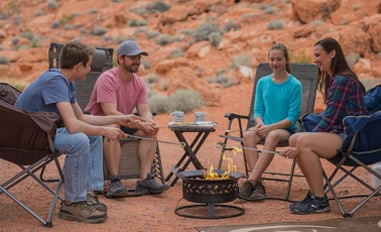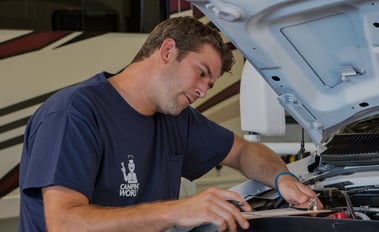FREE shipping over $99.
Good Sam members: FREE shipping over $69. | Join Now
FREE shipping over $99.
Good Sam members: FREE shipping over $69. | Join Now
Return Policy
Return Policy
We believe in offering the very best value, quality, and selection. Plus, we want you to enjoy your purchase! In the event you wish to send a product back to us, you may return most unused items for a refund or exchange, minus shipping, within 90 days from the date of purchase unless noted below under exceptions and exclusions. Refunds are issued to the original form of payment unless returned in-store where some exclusions may apply.
For web orders, please contact our customer service team
(1-888-626-7576) to ensure your return or exchange is documented and any potential questions have been answered. In most cases, a return authorization will be provided, and, in every case, we’ll begin to keep an eye out for your return.
For web orders returned in-store, please take the item in original packaging, along with the invoice to any Camping World retail locations for a refund or exchange. Shipping charges are non-refundable. Refunds for web orders issued in-store are able to be refunded to a GIFT CARD or MAILED CHECK ONLY; some exclusions may apply.
For retail purchases returned with a receipt, please return the unused and unopened item, with the original sales receipt, for a full refund or exchange. All returns with a gift receipt will receive a store credit for the amount of the item at the time of purchase.
For retail purchases returned without a receipt, the refund will be issued as a store merchandise credit at the lowest price within the last 90 days. Proper ID will be required in the form of a valid, state-issued driver’s license or state ID card. We reserve the right to limit or refuse returns without a receipt.
Good Sam Members who have maintained a continuous active membership status may return any unused and unopened product, purchased on Feb. 9, 2018, or later at any time. Good Sam Club members must be active on the date of product purchase. (Some exclusions apply.)
For Good Sam Protection Plans, simply return any Good Sam Protection Plan purchase to the store for processing or give us a call at (1-888-626-7576). Purchases paid for with a personal check are subject to a 14-day hold period prior to being eligible for return.
Exceptions & Exclusions
- Non-returnable items include outboard motors, trolling motors, EPIRBs, boats, SPOT, life rafts, PLBs, Class B AIS, items with expiration dates, custom-made/cut or special-order items, rigging, generators, electronic charts, mattresses, flares, hazardous items, licenses and gift cards. If proven defective, product returns or exchanges must be handled directly with the manufacturer.
- Items that can be returned within 30 days if unopened and unused are: electronics, skateboards, bikes, software, bedding, canoes, tents, drones and kayaks.
- After 30 days, defective product returns or exchanges must be handled directly with the manufacturer.
- Clearance and Outlet items are sold as is and cannot be returned at any time.
- Once an item is installed, we cannot accept a return or exchange. If the product becomes defective, product returns or exchanges must be handled directly with the manufacturer.
- Returns on items using a promotional discount - Any items returned as part of a promotional discount will be prorated and the value of the discount, free product, or gift card will be deducted from the reimbursement for items returned. Items received as part of a free gift promotion cannot be exchanged unless damaged or defective and for a direct replacement only. Gift cards cannot be exchanged for cash or applied to a previous purchase.
Remove Product?
Remove All Products?
Missing Points?
Please call our customer service department who can help get your points added.
8am - 11pm EST


Congratulations!
You have been enrolled in Good Sam Basic Membership!
Start earning points today!

Confirm phone number
Please verify your phone number to sign up for
Good Sam Basic Membership.

We ran into an issue.
Please try again and if you continue to have issues please
call 800-700-1366 for assistance.












